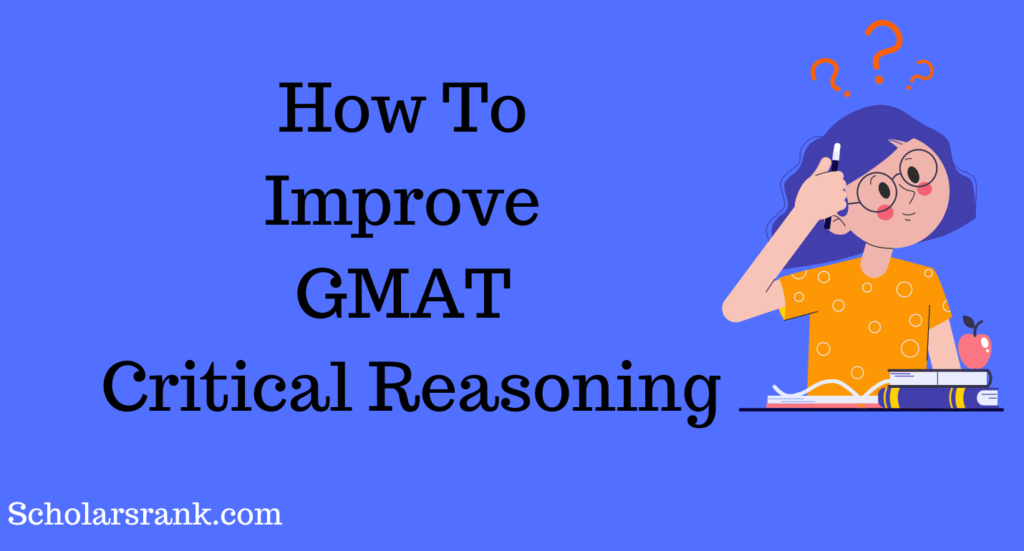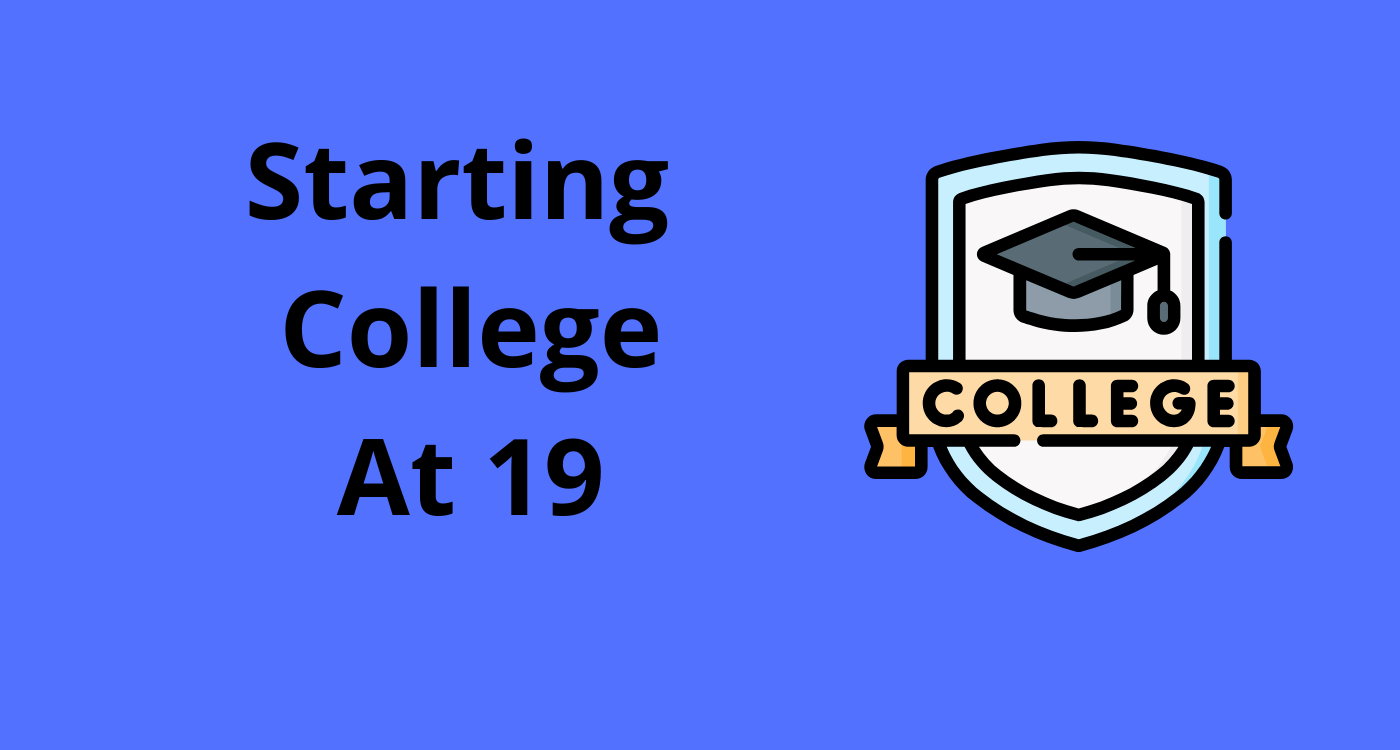Introduction
To improve GMAT critical reasoning score, you must be able to use smart, effective tactics for analyzing arguments and excluding answer options that have been skillfully and deftly crafted to trap, deceive, and confuse you. The basis of the GMAT’s testing consists of critical reasoning (CR) questions, which directly measure your ability to think critically and logically in a variety of circumstances that call for these skills.
Several students claim that the GMAT’s Critical Reasoning problems are the difficult ones they face on the Verbal portion.
What Is The GMAT?
A test to get admission to business schools is called the Graduate Management Admission Test (GMAT). It includes:
- A test of analytical writing that evaluates communication and critical thinking abilities.
- A portion on integrated reasoning demonstrates how well students can evaluate information presented in different formats and interpret data.
- A portion on quantitative reasoning that assesses pupils’ proficiency with mathematics and numerical literacy.
- A verbal reasoning component that assesses a person’s ability to understand written arguments as well as their reading comprehension and editing capabilities.
The GMAT is purposefully created to evaluate abilities that are most important for business school. It is a practical reasoning test. It’s not just about knowing; it’s about what you can do with it and how you can thoughtfully apply it while in business school. It more closely matches the daily activities of business people.
What To Expect In GMAT Critical Reasoning
- Between 9 and 13 of the 36 verbal questions on the GMAT will test your ability to use critical reasoning.
- GMAT Critical Reasoning questions are made to assess your capacity for formulating, deciphering, and evaluating claims and strategies.
- Each Critical Reasoning question starts with a textual stimulus, which is often a brief paragraph of no more than 100 words, followed by a question and five possible answers.
- You will always be asked to choose which of the five possible answers is most logically related to the stimulus.
Critical Reasoning passages can be related to topics like economics, science, music theory, politics, and psychology, to mention a few, just like GMAT Reading Comprehension passages, but you don’t need to have any in-depth understanding of these fields to answer CR problems.
GMAT Critical Reasoning Question Types
Types of GMAT Critical Reasoning questions
- Find the Assumption: For these questions, you must choose the option that best explains the underlying premise of the author’s argument.
- Weaken the Argument: For these questions, you must choose the option that best illustrates a truth that would undermine or harm the author’s position.
- Choose the response option that gives a fact that would aid or support the author’s argument in these questions to “strengthen the argument.”
- Resolve a Paradox: In these questions, you must choose the response that best resolves a situation that seems paradoxical but is not in reality.
- Cause and Effect: Typically, you are asked to analyze, strengthen, or weaken a cause-and-effect-based argument in these questions.
- Inference: These questions require you to choose the response that gives an unwritten conclusion that, based only on the facts in the passage, must be true.
- Find the Conclusion: For these questions, you must choose the response that best illustrates the conclusion that the passage supports.
- Evaluate the Argument: Choose the response option that will best enable you to evaluate the argument’s quality to decide whether it is well- or poorly constructed.
- Logical Flaw: These questions require you to choose the option that best illustrates a fault in the argument’s logic.
- Complete the Passage: In these questions, which combine elements of other question types, you must decide which response option best completes an incomplete passage.
- Method of Reasoning and Bold Face: Determine how a passage is logically arranged or structured by answering the questions.
The first three, Assumption, Weaken, and Strengthen, are the most typical of those 11 question kinds, but you never know what combination of question types you’ll see on any given GMAT, so it’s crucial to be ready for all of them. Fortunately, all of the different GMAT CR question types rely on the same essential abilities: your capacity for critical analysis of arguments, your comprehension of the information the question seeks to elicit, and your capacity for quick decision-making.
Tips To Improve Your GMAT Critical Reasoning
An argument using critical reasoning (CR) typically consists of facts (also known as premises) and a conclusion. You must have the ability to recognize the components of an argument. Never call into doubt the validity of the argument’s facts. The discrepancy between the facts and the conclusion can be questioned.
This void might be referred to as an assumption the author makes in their justification. In other words, given the premise(s), what did the author have to think to be true to conclude? Identifying an assumption is a need for many Critical Reasoning issues. Here are some suggestions to make things simpler as they can become complicated.
- State The Context.
The simplest, most concise response is frequently the best response, as you are aware from your work on sentence correction. When test creators create problems for Critical Reasoning and Reading Comprehension, it seems as though they take the guidelines they set for Sentence Correction and chuck them out the window. They use the most perplexing sentence structure when writing their sentences. Your task might be made simpler if you can make the test creators’ terminology simpler.
- Adopt Your Language.
Using your own words to answer a question is one approach to making the language used in the question clearer. Making extremely brief notes to summarize each statement in a passage for critical reasoning is required. This serves to clarify the material and make it easier to understand. Your own words will be simpler for you to comprehend than the challenging terms someone has selected to perplex you with!
- Recognize The Question Being Asked.
Consider a straightforward case in which Rome is deemed to be a pleasant place.
Which of the following, if true, would most support the aforementioned conclusion? is a typical query.
Option A) Rome is home to many excellent art galleries.
Option B) Venice is home to several excellent eateries.
Sometimes people are unsure if they need to take into account whether the options are true or false. This is optional for you to do. You can presume that each possibility is accurate. You don’t need to question whether Venice does offer a lot of excellent eateries. Since only Option A applies to Rome, it is obvious that Option A would be the correct response. If you keep in mind that it is not your responsibility to decide whether the options are true or false when the questions get harder, you can save time.
Conclusion
Strong logic and accurate reading are the two key qualities needed to improve GMAT Critical Reasoning questions. Give yourself plenty of study time and use top-notch, official GMAT resources while you hone a consistent, effective approach to GMAT Critical Reasoning questions because these abilities can be challenging to build.
Use the pointers and methods I provided in this article to enhance your GMAT Critical Reasoning performance.
Frequently Asked Questions (FAQs)
Why Is the GMAT Used by Business Schools?
- According to experts, business schools utilize GMAT results to determine whether aspiring MBA students have the abilities needed to succeed in challenging courses. The GMAT enables businesses to make that choice with some degree of assurance since they want to demonstrate in advance that an applicant will complete their program.
How Can I Register for the GMAT Exam?
- The majority of students can register for the GMAT online by making an account on the GMAC-run website mba.com and then booking an appointment through the web scheduling system. However, before setting up their test appointment, students with impairments who need accommodations should complete an accommodation request form.
You can also read on What does a data analysis do on a daily basis?








